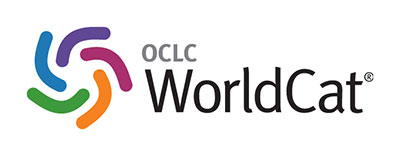Atención recibida por traumatismo dentoalveolar en la población de la parroquia urbana El Vecino del cantón Cuenca, en el año 2019
DOI:
https://doi.org/10.26871/killcanasalud.v7i2.778Keywords:
características, traumatismo dentoalveolar, traumatismo, dentoalveolarAbstract
The objective of this study is to determine the characteristics of care received by people from the urban parish El Vecino, in the city of Cuenca, after the dentoalveolar trauma in 2019. In order to fulfill this objective, an approach methodology mixed, qualitative and quantitative of descriptive design, having as study variables sociodemographic factors such as sex, age, place, professional care and attention time. The analyzed population was conformed by the habitual residents older than one year in the houses of the El Vecino parish; A validated questionnaire was used as an instrument to collect information, addressed to a sample of 326 individuals. The results show that 5.4% of the subjects presented dentoalveolar trauma, of which a frequency of 12 patients was identified who received medical attention, the majority of them male, with an average age of 6 to 12 years, attended primarily by a professional dentist (92%), in private offices with an estimated time of 24 hours to 7 days. The reason for the injuries was caused in 75% of the cases by falls, causing trauma to the teeth of the upper arch in all subjects. No statistical association was identified between sex, reason for stroke and consultation reception, since the p-value was greater than the significance levels (p> 0.05). It is concluded that there is a variation of the pathology in individuals with a high frequency in children, being more likely to suffer events that put oral health at risk.
Downloads
References
Andreasen J, Lauridsen E, Gerds T, Ahrensburg S. Dental Trauma Guide: A source of evidence based treatment guidelines for dental trauma. Dental Traumatology. 2012 August; 28(5).
Garbin C, Queiroz A, Rovida T, Garbin A. Occurrence of traumatic dental injury in cases of domestic violence. Brazilian dental journal. 2012; 23(1).
Glendor U, Marcenes W, Andreasen J. Clasificación, Epidemiología y Etiología. Texto y Atlas a Color de Lesiones Traumáticas a las Estructuras Dentales. 4th ed. Caracas: Amolca; 2010.
Mesquita G, Soares P, Moura C, Roscoe M, Paiva S, Soares C. A 12-Year Retrospective Study of Avulsion Cases in a Public Brazilian Dental Trauma Service. Brazilian dental journal. 2017; 28(6).
Flores M, Andreasen J, Bakland L. Guidelines for the evaluation and management of traumatic dental injuries. Dental traumatology. 2001; 17(4).
Organización Mundial de la Salud. Organización Mundial de la Salud. [Online].; 2020 [cited 2020 junio 22. Available from: https://www.who.int/es/news-room/fact-sheets/detail/oral-health.
Corral C, Mercado M, Latapiat A, Veliz A, Garrido M, Jr O. Protector bucal por laminado a presión en paciente deportista. Revista clínica de periodoncia. 2017; 10(3).
Borin-Moura L, Azambuja-Carvalho P, Daer-de-Faria G, Barros-Gonçalves L, Kirst-Post L, Braga-Xavier C. A 10-year retrospective study of dental trauma in permanent dentition. Revista Española de Cirugía Oral y Maxilofacial. 2018 junio; 40(2).
Silva A, Anjos D. Traumatismo dentoalveolar em dentes permanentes: revisão de literatura. Unitse. 2019.
Grassi A. Rol de la Ortodoncia y la Ortopedia en el tratamiento de pacientes con. Odonto pediatra. 2014 diciembre; 4(1).
Rosado Y, Blanco D, Juárez N. Traumatismo dentoalveolar: Informe de un caso clínico en paciente masculino de 25 años. Revista Mexicana de Estomatología. 2019 junio; 6(1).
Castro P, Arroyo D. Prevalencia de traumatismos dentoalveolares en pacientes infantiles del complejo asistencial Dr. Sótero del Río. Revista Clínica de Periodoncia, Implantología y Re habilitación Oral. 2012; 5(3).










